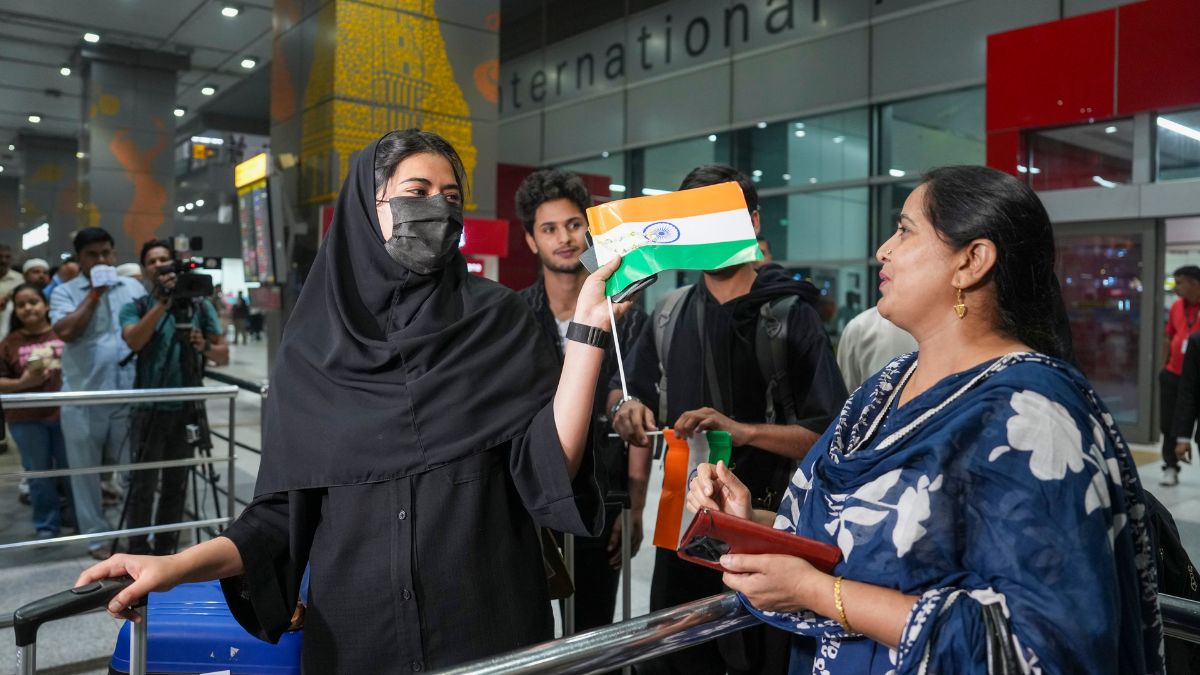Over 4,000 Indians evacuated from Iran and Israel under Operation Sindhu: MEA
)
Operation Sindhu: India Successfully Evacuates Thousands from West Asia Amid Rising Tensions
New Delhi: India's Ministry of External Affairs (MEA) announced on Friday the successful completion of a significant phase of "Operation Sindhu," an initiative launched on June 19 to evacuate Indian nationals from conflict-affected areas in West Asia, primarily focusing on Iran and Israel. The operation comes amidst a backdrop of escalating regional tensions and aims to ensure the safety and well-being of Indian citizens residing in these countries.
MEA spokesperson Randhir Jaiswal, in a press briefing, confirmed that the evacuation effort has brought home thousands of Indian citizens who were stranded due to the prevailing volatile situation. The operation highlights India's commitment to its diaspora and its capacity to execute complex logistical operations in challenging environments.
Scale of the Evacuation
According to the MEA, a substantial Indian community resides in the region, comprising approximately 10,000 individuals in Iran and around 40,000 in Israel. The evacuation focused primarily on those expressing a desire to return to India given the heightened security concerns.
“We have around 10,000 people from the Indian community in Iran, around 40,000 people in Israel who are Indian nationals,” stated Jaiswal, emphasizing the scale of the operation and the logistical challenges involved.
Specifics of the Evacuation from Iran
The MEA provided a detailed breakdown of the evacuation from Iran, highlighting the diverse nationalities assisted in the process:
3,426 Indian nationals 11 Overseas Citizen of India (OCI) cardholders 9 Nepalese nationals Several Sri Lankan nationals 1 Iranian national (spouse of an Indian national)
In total, 14 flights were organized to facilitate the return of these individuals. These flights operated from Mashhad (Iran) and utilized transit points in Yerevan (Armenia) and Ashgabat (Turkmenistan) to streamline the evacuation process.
Geopolitical Context and Expert Analysis
The evacuation operation occurs against a complex geopolitical backdrop. Recent months have witnessed increased tensions in the Middle East, fueled by regional conflicts and geopolitical rivalries. The situation necessitates proactive measures to protect vulnerable populations, including foreign nationals.
Dr. Lakshmi Priya, a Research Fellow specializing in Middle Eastern security at the Institute for Defence Studies and Analyses (IDSA), commented on the significance of Operation Sindhu: “This operation underscores India’s growing role as a responsible stakeholder in the region. Beyond the immediate humanitarian aspect, it also demonstrates India's ability to project its influence and protect its citizens in a volatile security environment. The use of multiple transit points reflects a well-planned and adaptable strategy, crucial for navigating the complexities of the region."
Furthermore, the decision to include nationals from neighboring countries like Nepal and Sri Lanka highlights India's regional responsibility and commitment to humanitarian assistance beyond its own citizens. This resonates with India's "Neighborhood First" policy, fostering goodwill and cooperation within the South Asian region.
Historical Precedents and Future Implications
Operation Sindhu is not the first instance of India undertaking large-scale evacuation operations. Previous examples include Operation Rahat in Yemen (2015) and Operation Devi Shakti in Afghanistan (2021), demonstrating India's consistent preparedness to respond to crises affecting its diaspora. These operations have not only rescued Indian citizens but also enhanced India's reputation as a reliable partner during times of crisis.
Looking ahead, the success of Operation Sindhu provides valuable lessons for future evacuation efforts. The MEA's ability to coordinate with various stakeholders, including airlines, foreign governments, and local authorities, is crucial for ensuring the safety and efficiency of such operations. The use of digital platforms for registration and communication also plays a significant role in streamlining the process and providing timely updates to those affected.
Professor Rohan Mukherjee, a political science professor at the National University of Singapore specializing in Indian foreign policy, notes that "Operation Sindhu, like its predecessors, serves as a powerful tool of soft power projection for India. The visible effort to bring citizens home safely resonates strongly both domestically and internationally, reinforcing India's image as a capable and caring nation. However, it also highlights the inherent risks faced by Indian nationals working abroad in unstable regions, necessitating a continued focus on proactive diplomacy and contingency planning."
The MEA has not yet announced the complete cessation of Operation Sindhu, suggesting that further assessments are underway to determine if additional evacuations are necessary based on the evolving security situation in the region. The ministry continues to monitor the situation closely and remains committed to the safety and well-being of Indian nationals abroad.
Originally sourced from: Firstpost
